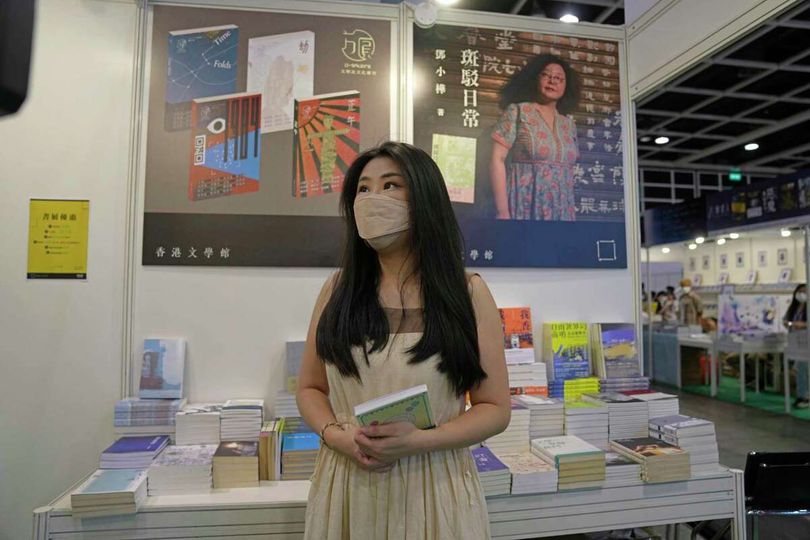With fewer political novels, the Hong Kong book expo begins
on Jul 21, 2022

The annual book expo in Hong Kong began on Wednesday, with some publishers of political novels being prohibited from attending and others stating they had to be cautious about what they displayed.
The primary organiser of the fair, the Hong Kong Trade Development Council, said that it did not review the books being sold there. However, since a strict national security law went into effect in 2020, Hong Kong authorities have increased restrictions on the right to free speech and have detained dozens of pro-democracy activists. The council emphasised that exhibitors must adhere to the law.
Hillway Culture, an independent publisher of books about politics and Hong Kong, was one of those barred from the event. Another publisher was One of a Kind, which released a number of books about the city's protests in 2019.
Given the pandemic's negative economic effects on the city and worries about censorship and rejection of independent publishers, publishers are having a difficult time, according to Kaying Wong, a guest curator at The House of Hong Kong Literature, the largest literary institution in the area.
Being chosen to exhibit at the book market and setting up a stand there is undoubtedly a difficult task, said Wong.
It is one of the biggest book fairs in Asia. It was renowned in previous years for displaying a variety of books, including some that were sensitive politically and those that were outlawed on the Chinese mainland under communist government.
Due to the epidemic in 2020, the city repeatedly postponed the expo. After a one-year break, the event was eventually held in person in June of last year. The book fair for this year is open from Wednesday through Tuesday, July 26.
Authors need to think about whether they can get published in the current context, according to novelist Gabriel Tsang, who collaborates with publisher Spicy Fish Cultural Production Limited.
"I suppose that most authors have their own goals... and they must consider carefully whether they may have their work published. Instead of saying what they originally intended to say, they might utilise an allegory or a variety of rhetorical devices, he said.
One of the publishers this year that was rejected, Hillway Culture, was accused of displaying politically charged publications that might have violated the national security act the previous year.
The founder of Hillway Culture, Raymond Yeung, stated, "Last year, we (exhibited) political novels in the book fair and this was also the case for another publisher that was prohibited." At the book exhibition the year before, he was one of the few publishers permitted to display political novels about Hong Kong.
The venue's owner accused Hillway of breaking its lease by subletting its space to other publishers, forcing Yeung to abandon earlier this month's attempt to organise an independent book fair as a substitute for the main event.
According to Hui Ching, research director at the policy think tank Hong Kong Zhi Ming Institute, the government should be more explicit and upfront about the kind of activities that are permitted.
Hui added, "It's reasonable for the person to assume their rights are being robbed if there is no transparency."
The fair is still valued by visitors as a place to look over and buy a variety of books.
Grace Ng, a university student who went to the fair with her boyfriend, said, "I read as a habit and today I've come to hunt for some Chinese books and short tales that I'm interested in.
Ng said this year's fair seemed a little more somber than usual because she usually visits it. As opposed to before the outbreak, she said, "it's not as crowded anymore."



.jpg)






.jpg)

.jpg)
.jpg)
.jpg)
.jpg)
.jpg)










Sorry! No comment found for this post.